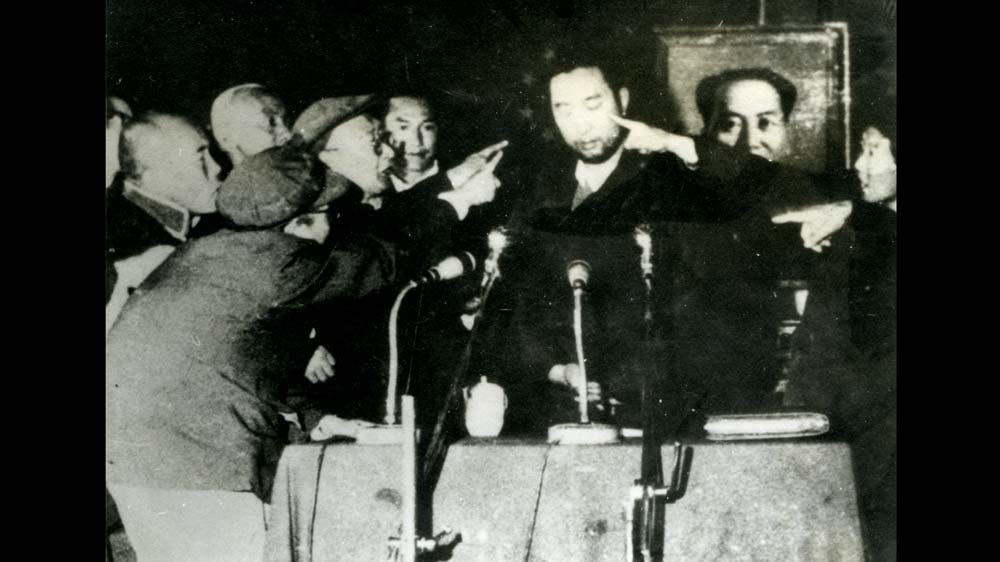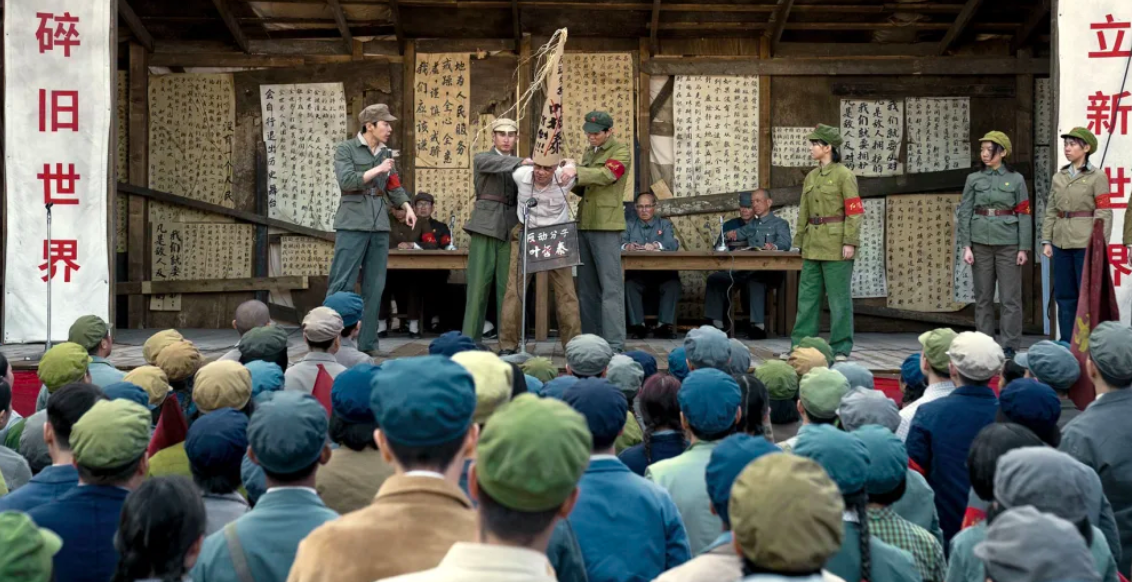By Tenzin Nyidon
DHARAMSHALA, April 2: Netflix’s recent global sensation, “3 Body Problem,” has ignited controversy due to its portrayal of the Chinese Communist Party. Adapted from Liu Cixin’s 2006 acclaimed Chinese science fiction novel “The Three-Body Problem,” the series has faced criticism within China for what some perceive as a negative depiction of Chinese characters and the promotion of American cultural dominance masked as diversity.
The opening scene of the show, set against the backdrop of China’s Cultural Revolution, has particularly drawn backlash. On the grounds of Tsinghua University in Beijing, a disturbing sequence unfolds where a physics professor is mercilessly beaten to death by Mao’s Red Guards while being denounced by his colleague and wife. Meanwhile, his daughter, Ye Wenjie (portrayed by Zine Tseng), witnesses the brutality with horror.
During the tumultuous decade of the Cultural Revolution, “struggle sessions” or “denunciation rallies” were common occurrences where people accused of being “class enemies” were publicly humiliated, beaten and tortured, by Red Guards and sometimes by people with whom they were close.
Many Tibetans including high lamas, members of aristocracy and common people underwent struggle sessions or Thamzing in Tibetan. Panchen Lama, one of the most revered Buddhist figures underwent numerous bouts of struggle session in 1966 during the height of the Cultural Revolution in Tibet. In the aftermath of the brutal campaign, China imprisoned thousands of monks and nuns, destroyed all but 11 of Tibet’s 6,200 monasteries, and burned sacred texts in an effort to obliterate Tibetan culture. By the late 1970s,1.2 million Tibetans had died as a result of the occupation, according to official numbers.

Chinese state media outlets have accused the show’s producer, alleging the use of ‘political correctness’ as a guise to counteract China’s cultural influence. They argue that by promoting ‘pluralism’, the series actually perpetuates American cultural dominance and ingrained discrimination against other civilisations. The Chinese Communist Party tabloid Global Times in a report stated, “If certain TV series have to persist in presenting stories in a ‘western-centric’ way, that won’t escape the eyes of [our] audiences”.
While Chinese microblogging platform Weibo users have used the popular saying “making a whole tray of dumplings just for a bit of vinegar sauce,” have criticised the show’s producer, suggesting that their true intention behind creating the TV series was simply to portray China in a negative light.
Some have rallied to the defence of the show, arguing that the scene faithfully mirrors depictions found in the book and serves as a truthful portrayal of history. Author Liu, in an interview with the New York Times in 2019, revealed that he had initially intended to begin the book with scenes from Mao’s Cultural Revolution. However, his Chinese publisher expressed concerns about potential censorship from the government. In the English version of the book, translated by Ken Liu, these scenes were placed in the novel’s opening scene with the author’s approval.
“3 Body Problem” was adapted for Netflix by David Benioff and D.B. Weiss, co-creators of “Game of Thrones,” along with American producer Alexander Woo.











One Response
The entertainment industry is yet another form of conveying messages to the viewing public en masse to influence opinion. Perhaps also worthwhile and interesting to note of Chinese-Americans and various well distributed and promoted movies and various TV series, including such as “Nomadland” and “Expats” (the latter being the works of the daughter of a former Chinese diplomat to Moscow).
There is a saying that history is written by winners of a conflict–so how the other side portrays things so it is not one-sided is meaningful. And then there are also the cases where there are no winners.